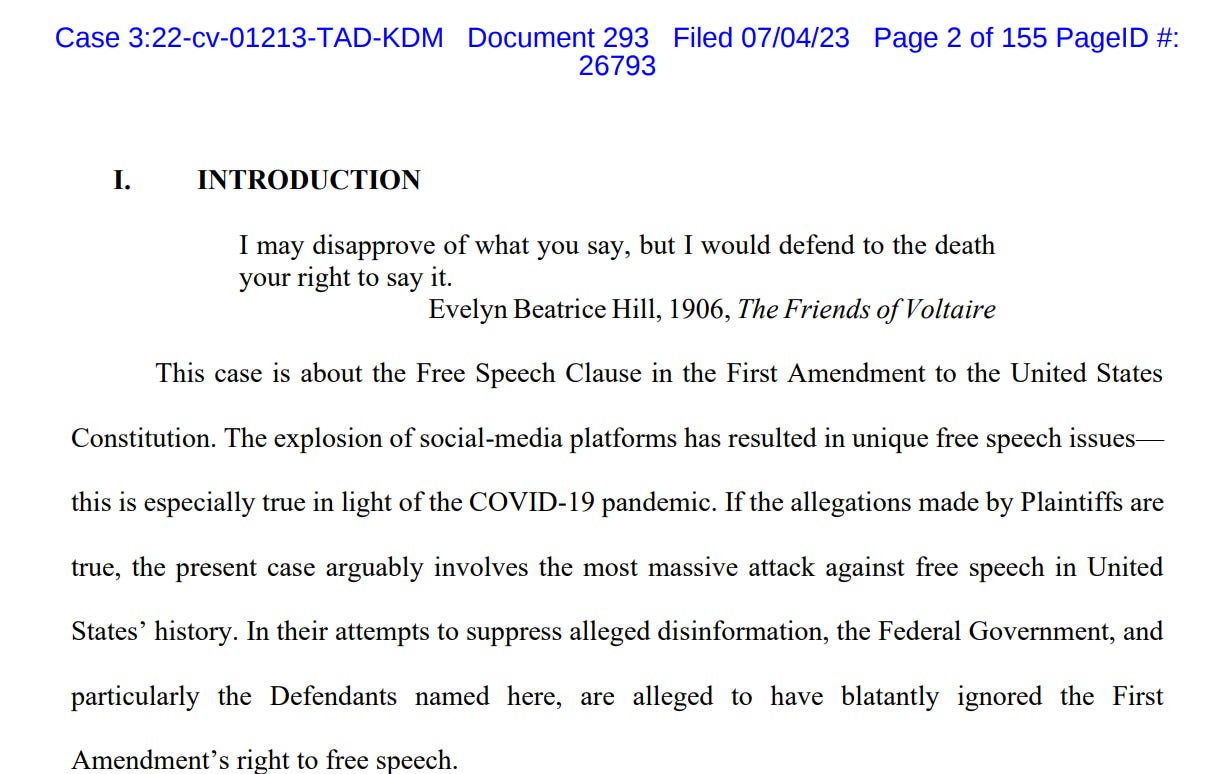IT'S INDEPENDENCE (FROM CENSORSHIP) DAY
A federal judge in Louisiana just blew up the White House effort to force social media companies to censor people with opinions (or facts) it doesn't like. This is YUUUGE for Berenson v. Biden.
Earlier today, federal Judge Terry Doughty of the Western District of Louisiana issued a preliminary injunction barring the White House and several federal agencies from trying to get social media companies from censoring people or posts.
If the post is “protected free speech,” the agencies CANNOT ask Twitter, Facebook, or anyone else to do anything about it, Judge Doughty ruled.
Doesn’t matter if it’s the finest piece of journalism since The New York Times published the Pentagon Papers or the finest piece of journalism since The New York Times published Walter Duranty’s reporting on the 1930s Soviet famines. The White House has no business trying to get it taken down, Judge Doughty wrote in a brilliant 155-page memorandum supporting his injunction in the lawsuit, which the states of Missouri and Louisiana filed against President Biden last year.
It’s Independence Day, all right.
-
(SUPPORT INDEPENDENT JOURNALISM ON INDEPENDENCE DAY)
-
On page 102 of the memorandum, Judge Doughty neatly explained the stakes.
“Without a free debate about these issues, each person is unable to decide for himself or herself the proper decision regarding their health. Each United States citizen has the right to decide for himself or herself what is true and what is false. The Government… does not have the right to determine the truth.”
—
(Free speech. It’s as American as apple pie. And Voltaire. Though - ironically - he didn’t say this.)
—
More coming on this ruling - and its very favorable implications for Berenson v Biden. (The White House’s efforts to censor me come up repeatedly in the memo.)
But for now, just enjoy this unprecedented win.





It was never about fighting disinformation. It was always about suppressing information.
For more than half a century courts have held that governmental threats can turn private conduct into state action. It is “axiomatic,” the Supreme Court held in Norwood v. Harrison (1973), that the government “may not induce, encourage or promote private persons to accomplish what it is constitutionally forbidden to accomplish.”
What a great outcome and delivered on Independence Day!